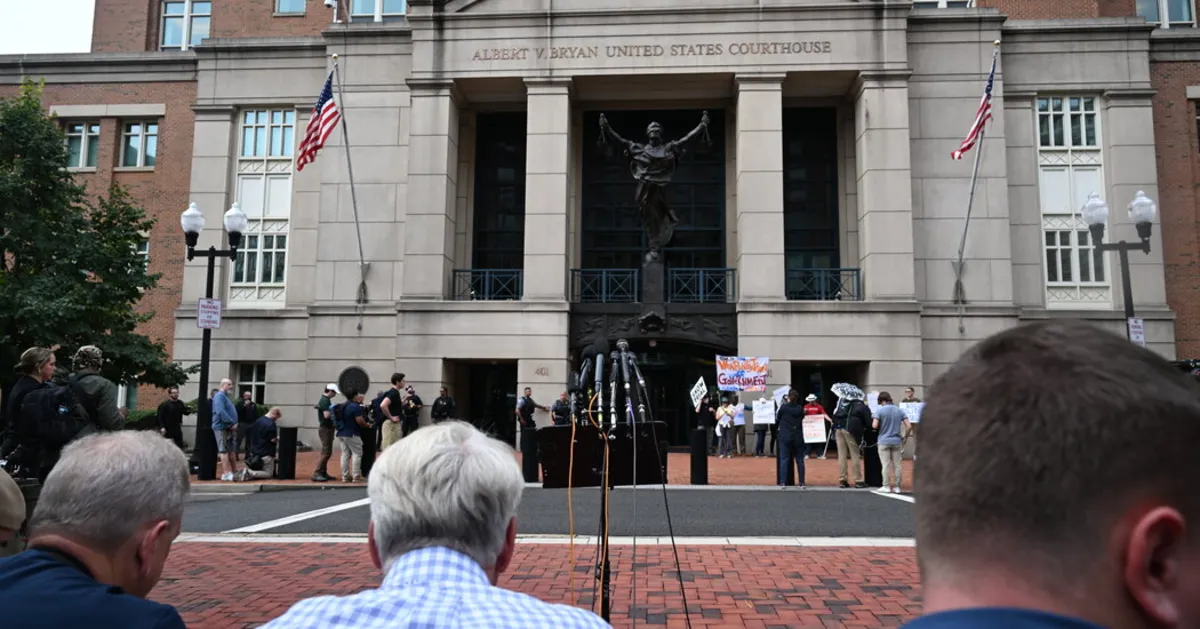
A lawyer representing James B. Comey, the former director of the F.B.I., stated during his arraignment on Wednesday that the defense team is preparing to file two significant motions aimed at dismissing the case against him before it proceeds to trial. Patrick J. Fitzgerald, the defense attorney and a former high-profile prosecutor from the Justice Department, indicated that the defense would argue that the Trump administration abused its prosecutorial power. Additionally, they plan to raise a technical challenge regarding the legitimacy of the prosecutor appointed by President Trump, Lindsey Halligan.
Fitzgerald highlighted that one of the motions would claim that the charges against Comey represent a form of “vindictive prosecution” and “selective, retaliatory prosecution” orchestrated by President Trump to silence Comey. These allegations fall under the broader category of abuse of prosecutorial power, which infringes upon the constitutional guarantees of due process and equal protection.
Vindictive prosecution is a serious form of prosecutorial misconduct where charges are brought for improper reasons, often as retaliation for the exercise of constitutional rights. Legal experts assert that merely demonstrating a focus on a specific individual is insufficient; the defense must provide evidence that the charges against Comey were motivated by retaliatory intentions. This is particularly relevant given Trump’s long-standing criticism of Comey, whom he fired in 2017 amid the Russia investigation. Fitzgerald suggested that the motive behind the charges could be an attempt to silence Comey for exercising his First Amendment rights.
Selective prosecution refers to the practice of targeting a single individual for charges while others committing similar offenses remain uncharged. This practice violates a defendant's right to equal protection under the law. To prove selective prosecution, the defense would need to show that the same prosecutor’s office, in this case, the U.S. attorney in the Eastern District of Virginia, reviewed comparable cases and chose not to charge others for reasons that reflect discrimination based on protected characteristics.
Legal scholar David A. Sklansky from Stanford University posed an intriguing question: Do individuals opposed to Trump constitute a political class that deserves protection against selective prosecution? He referenced a past case where a defendant was charged for protesting against the military draft; a federal judge initially sided with the defendant, but the Supreme Court later ruled that the case could proceed due to insufficient evidence of targeted discrimination.
Defendants in politically charged cases frequently assert claims of vindictive and selective prosecution, yet such claims rarely succeed. This is primarily due to the broad discretion afforded to prosecutors in the American justice system, allowing them to determine the handling of cases, from the severity of charges to plea bargains. Samuel W. Buell, a professor of criminal law at Duke University, noted that courts generally defer to the executive branch regarding charging decisions, making successful pretrial dismissals exceedingly rare.
However, the circumstances surrounding Comey’s indictment are atypical. Trump allegedly pressured Attorney General Pam Bondi to charge Comey with lying under oath just as the statute of limitations was nearing expiration. When the previous interim U.S. attorney, Erik S. Siebert, deemed the evidence insufficient for indictment, Trump replaced him with Halligan, who had no prior prosecutorial experience. This series of events may provide Comey with a unique opportunity to argue that vindictive prosecution applies in this instance, according to Professor Buell.
In addition to the aforementioned arguments, Fitzgerald also plans to challenge the validity of Halligan’s appointment as U.S. attorney. This is a technical legal argument that questions whether Halligan had the proper authority to seek an indictment against Comey. If her appointment is deemed unlawful, it could result in the dismissal of the indictment.
Typically, a U.S. attorney is a position confirmed by the Senate, and in cases of vacancy, the second-in-command usually serves as the acting U.S. attorney until a new appointee is confirmed. However, federal law allows an administration to appoint someone else temporarily, with certain restrictions. Halligan’s appointment appears to fall under a statute permitting the attorney general to designate an “interim” U.S. attorney for 120 days. After that period, a federal court determines who will be the next interim appointee until the Senate confirms a permanent replacement.
While Trump has nominated Halligan for the position, her appointment raises questions due to the previous appointment of Siebert as an interim U.S. attorney. Legal expert Anne Joseph O’Connell from Stanford highlighted the ambiguity surrounding Siebert’s departure and whether it creates a new vacancy. The interpretation of this situation is crucial, as it could impact Halligan's authority to pursue charges against Comey.